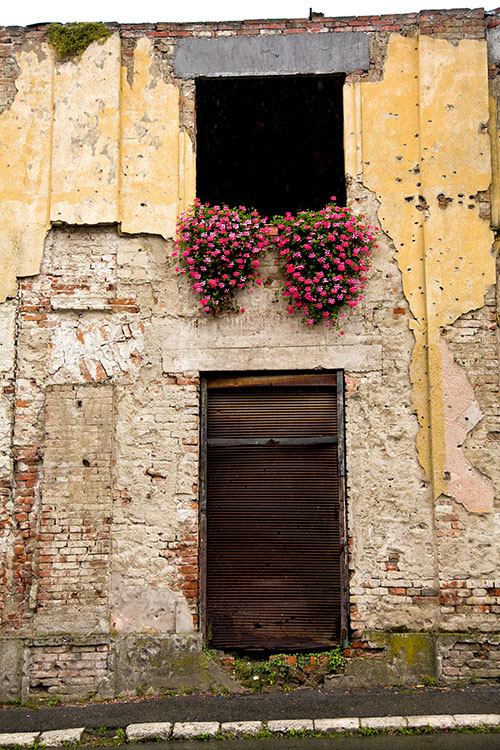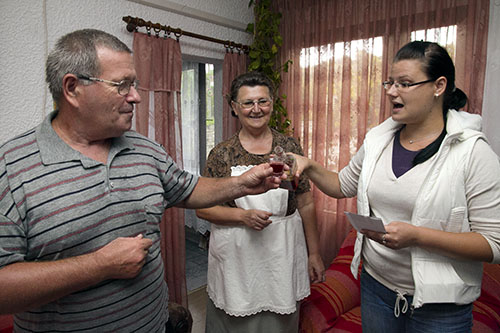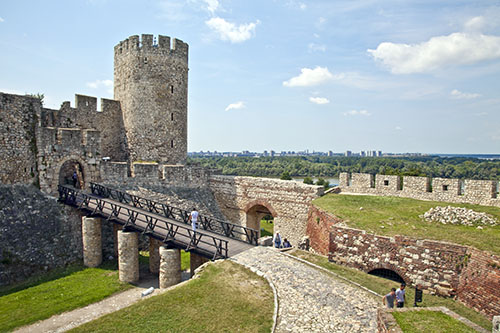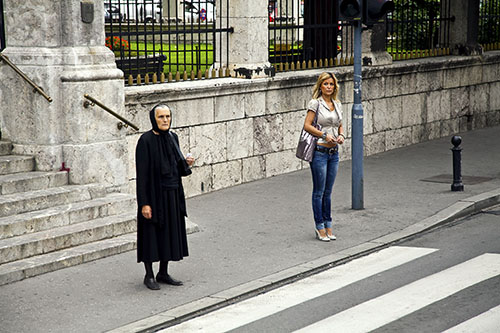Brava to Elizabeth Gilbert for putting experience back in travel. She didn't go to the three I's -- Italy, Indonesia and India -- to look at buildings. Her heart may have been aching, but it also managed to be open to what was happening around her as well as inside of her. Her book and film are successful because she is a born storyteller, who could probably spin a yarn as soon as she shed her diapers. But could the success also be because people resonate with the idea that travel is more than ticking off sites on a list, and burying one's nose in a guidebook? Travel is about experience, taking in new information, allowing oneself to re-organize internally, before returning to everyday life.
A few weeks ago, I went to Serbia and Croatia as part of a Uniworld Boutique River Cruise that sailed on the Danube through Eastern Europe. I booked it through WLC vacations. They were probably groaning and rolling their eyes every time I called or emailed them to ask if there was free time in each port and a chance to connect with local people. Yes, yes, they assured me. To me, connections to people means traveling. No connections and it's tourism.
Today, Serbia, Croatia and Bosnia Herzegovina are independent Balkan countries; a little more than a decade ago, they were locked in a bone-chilling, heart-sucking war, and the NATO bombings were heard and felt around the world. "How do they feel about the bombings and how do they get along with each other today?" I wondered.
Onboard our ship, the River Princess, there were three highly informative lectures: one about the war in general, a second about Croatia, and a third about Bosnia. "I don't want to hear about politics. This is my vacation," one passenger complained, but the others were riveted. They loved the graciously-served and artistically-presented meals, the ethnic performances in the lounge and the beautiful brown Danube, but they wanted their trip to be meaningful and enriching. The talks and up-close connection to locals made it so.
We drove through the town of Vukovar, where the first bombs of the war were dropped, and we stared sadly at the bullet and bomb-riddled houses and businesses that have hung on stubbornly since the war. Many of us looked away or looked down, as though absorbing the shame of being part of a species that does this.

Then we were broken up into small groups and invited into the houses of Croats in the town of Aljmas. At the home of Maria and Ivan Koletar, with the aid of their niece Martina who served as interpreter, we chitchatted about the plum, cherry and walnut wines produced by Ivan and the vegetable soup, baked chicken, rice with peas, cabbage slaw and cake served by Maria.

Then, we started talking about the war. Martina told us how her family had to pack up and leave. "We just took a few belongings and got on a boat. We thought we'd be back the next day, so we didn't take pictures or gold or money. We just took clothes for one day." They were separated from their homes for seven years. Maria and Ivan told us how they had to leave their house and came back to find it denuded of all possessions after years of occupation by Serbians.
In Serbia, locals told me how pained they are that the world sees them as monsters and aggressors, and how brutalities were committed by Croats as well as Serbs. A group of actors and artists in Belgrade regaled me with tales of protesting the election that was stolen by right-wing nationalist Milosevic. At the spectacular and evocative Fortress of Belgrade, which was first constructed by the Romans and then built or destroyed over 30 times by Byzantines, Bavarians, Slavs, Bulgarians, Hungarians and Ottomans, I was admiring a section of the l5th-century gate when a young Serbian couple started to talk about Tito, Milosevic, and the bombing of Kosovo.

Even the folklore performers onboard the boat wanted to converse.
And all of them, Serbs and Croats alike, talked about the future, and how they are faring in the former Yugoslavia. Somehow, they have survived, and somehow, they are hopeful and even thriving.

Meaningful, meaningful. Connected, connected. That's how I like my trips to be. And it doesn't hurt to have luxury, customized service, a large cabin, world-renowned and little-known port stops and one of the major waterways of Europe within arm's reach.
If you are interested in experiential travel, check out my new book, Life Is A Trip: The Transformative Magic of Travel. Published August 1, 2010. $14.95 ISBN : 978-0-9818708-8-5
Photos by Paul Ross